Self-driving cars manufactured by Phenikaa-X Company are tested at Hikari Commercial Area, Binh Duong Ward, Ho Chi Minh City. (Photo: ANH DUONG)
Digital infrastructure projects and “Make in Vietnam” products reaching out to international markets are demonstrating the strength of the private sector in the national innovation ecosystem.
Building new power
In recent times, many private enterprises have proven that innovation is the key to improving competitiveness by boldly investing in core technology, building digital infrastructure and gradually asserting their position in the global value chain.
CMC Technology Group has just been approved to invest in a super-scale data center in Ho Chi Minh City. This is a strategic project, affirming that Vietnamese enterprises have officially joined the global playground of digital infrastructure, which has long been dependent on foreign countries. Sharing more about the projects that will participate more deeply in the global value chain, Mr. Nguyen Trung Chinh, Chairman of the Board of Directors, Executive Chairman of CMC Technology Group, said that in Hanoi, the group has just started construction of the Creative Space Complex (CCS) with a scale of 300 million USD, expecting to become an open artificial intelligence (AI) center and establish CMC Open AI Company to bring AI technology from Vietnamese research to commercialization, providing an open AI ecosystem for businesses, the Government and the community.
“In 2024, the group's revenue will reach more than VND8,200 billion, with pre-tax profit of more than VND500 billion. In the first quarter of fiscal year 2025, revenue will increase by more than 23%, pre-tax profit will increase by more than 40% over the same period. This is an important foundation for the group to confidently set a target of nearly VND10,000 billion in revenue in 2025, with a growth rate of over 20%. We take AI as a new growth driver and gradually bring Vietnamese intelligence to the world ,” Mr. Chinh emphasized.
Contributing to the innovation power of the private sector, Phenikaa Group builds a closed innovation chain within the same ecosystem, from universities, research institutes, R&D centers to manufacturing enterprises, creating a continuous flow from scientific ideas to commercial products. In particular, Phenikaa University provides high-quality human resources for R&D activities.
Dr. Le Anh Son, Deputy General Director of Phenikaa Group, Director of Phenikaa-X Company, said that the group has focused on key areas such as autonomous technology, AI, semiconductors, biomedical technology, advanced materials and energy storage. This is the key to ensuring sustainable growth and enhancing global competitiveness in the new era. To date, the group has successfully commercialized many "Make in Vietnam" products such as: Level 4 autonomous vehicles Autonomous Mini-bus applied in industrial parks and urban areas; AMR robots serving factory logistics, deployed at Samsung Thai Nguyen Factory and exported to Korea...
Enterprise innovation contributes to the formation of national technological capacity. A representative of Asia Industrial Engineering Joint Stock Company said that thanks to mastering core technology in electrical equipment, the enterprise competes fairly with foreign enterprises. The company's low-voltage, medium-voltage electrical equipment, and SCADA integrated systems have been put into service in a number of key national projects, which is proof and also a driving force for the private sector to participate in key infrastructure projects in the spirit of Resolution No. 68 of the Politburo...
According to Mr. Pham Duc Nghiem, Deputy Director of the Department of Startups and Technology Enterprises (Ministry of Science and Technology), at this time, aspiration, intelligence and action can make a difference. Each Vietnamese enterprise and entrepreneur who is ready to innovate and put national interests above short-term interests will become the source of strength to create a strong Vietnam, a self-reliant, creative and prosperous economy in the new era.
Need a breakthrough in implementation
The endogenous strength of the private sector is stimulated by innovation, but without accompanying policies, these efforts will hardly go far. Therefore, innovation needs to be promoted not only in terms of technology, product or business model and organization but also in terms of institutions and policies.
New policies such as Resolution No. 57, Resolution No. 68 of the Politburo, Law on Science, Technology and Innovation, etc. have created a “priority lane” for private enterprises to break through through innovation, especially expanding business autonomy in commercializing results. Mr. Nguyen Trung Chinh shared that the new regulations have opened up a clear legal corridor for R&D with a sandbox mechanism for testing, a controlled risk acceptance mechanism, and capital, tax and credit policies to support research.
From there, CMC Corporation can invest more heavily and long-term in strategic areas such as AI, cloud, and cybersecurity, while shortening the path from research to commercialization. Core technologies developed by the corporation such as optical character recognition (C.OCR), cloud computing (C.Cloud), and artificial intelligence (C.OpenAI) will have the opportunity to be put into practical application faster. The new policy also helps the corporation to cooperate more easily internationally, such as with Samsung, Japanese partners, and members of the Global AI Alliance, to bring Vietnamese technology to the world market.
Taking advantage of the opportunities from new policies, Sao Thai Duong Joint Stock Company has proactively implemented research on strategic products to increase competitiveness in the market. The Association of Science and Technology Enterprises has also planned to organize an annual conference connecting technology supply and demand in a completely new way, in which enterprises will present the problems they are facing and place orders with individuals and organizations to solve those "problems".
However, for private enterprises to truly become the pioneers of innovation, it is necessary to focus on implementation factors. Many enterprises believe that the Government has issued the first sandbox mechanism for financial technology solutions in the banking sector (Decree 94/2025/ND-CP) and more sandboxes need to be deployed quickly for emerging technologies such as AI, Big Data, etc. to minimize legal risks and encourage investment in innovation.
In addition, it is necessary to increase spending on R&D, aiming to reach 2% of GDP by 2030 according to Resolution No. 57. Capital sources need to be prioritized for building technical infrastructure, from laboratory systems, equipment meeting international standards to the formation of advanced research centers, on the basis of which science and technology enterprises are given priority to exploit. The State needs to widely deploy public-private partnership models, promote the effectiveness of science, technology, and innovation projects such as ordering key projects on digital infrastructure, data centers, AI, cybersecurity, etc.
HA LINH
Source: https://nhandan.vn/khang-dinh-vi-the-dua-tren-doi-moi-sang-tao-post906590.html



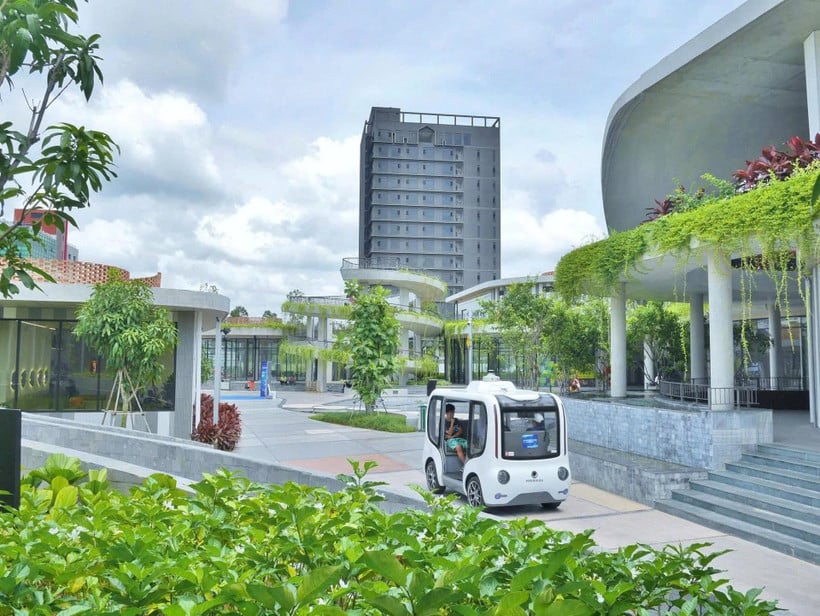
![[Photo] General Secretary To Lam receives Assistant to the President of Russia, Chairman of the Federal Maritime Council of Russia Nicolai Patrushev](https://vphoto.vietnam.vn/thumb/1200x675/vietnam/resource/IMAGE/2025/9/16/813bd944b92d4b14b04b6f9e2ef4109b)
![[Photo] General Secretary To Lam attends the National Conference to disseminate and implement 4 Resolutions of the Politburo](https://vphoto.vietnam.vn/thumb/1200x675/vietnam/resource/IMAGE/2025/9/16/70c6a8ceb60a4f72a0cacf436c1a6b54)
![[Photo] National conference to disseminate and implement 4 Resolutions of the Politburo](https://vphoto.vietnam.vn/thumb/1200x675/vietnam/resource/IMAGE/2025/9/16/5996b8d8466e41558c7abaa7a749f0e6)

![[Photo] Prime Minister Pham Minh Chinh receives Minister of Foreign Affairs and Cooperation of Timor-Leste](https://vphoto.vietnam.vn/thumb/1200x675/vietnam/resource/IMAGE/2025/9/16/b0e99fd9a05846e4b6948c785d51d51f)






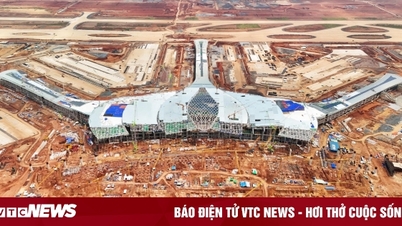









![[Photo] Prime Minister Pham Minh Chinh receives Minister of Foreign Affairs and Cooperation of Timor-Leste](https://vphoto.vietnam.vn/thumb/402x226/vietnam/resource/IMAGE/2025/9/16/b0e99fd9a05846e4b6948c785d51d51f)









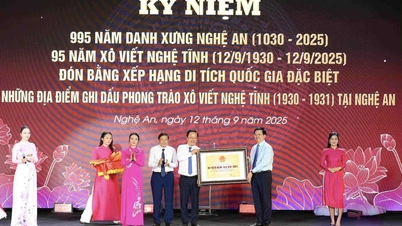
















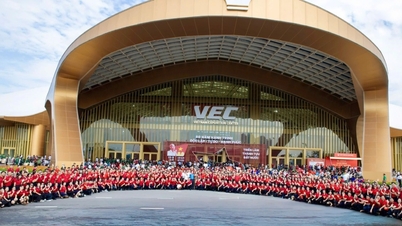







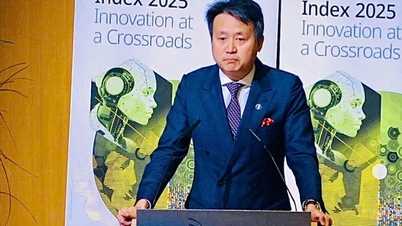




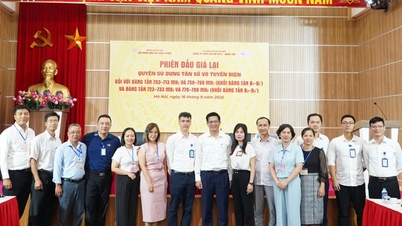










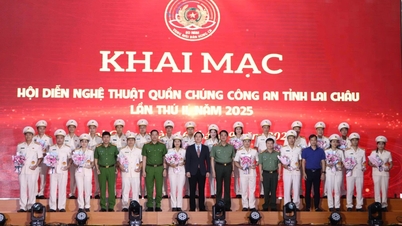
















Comment (0)